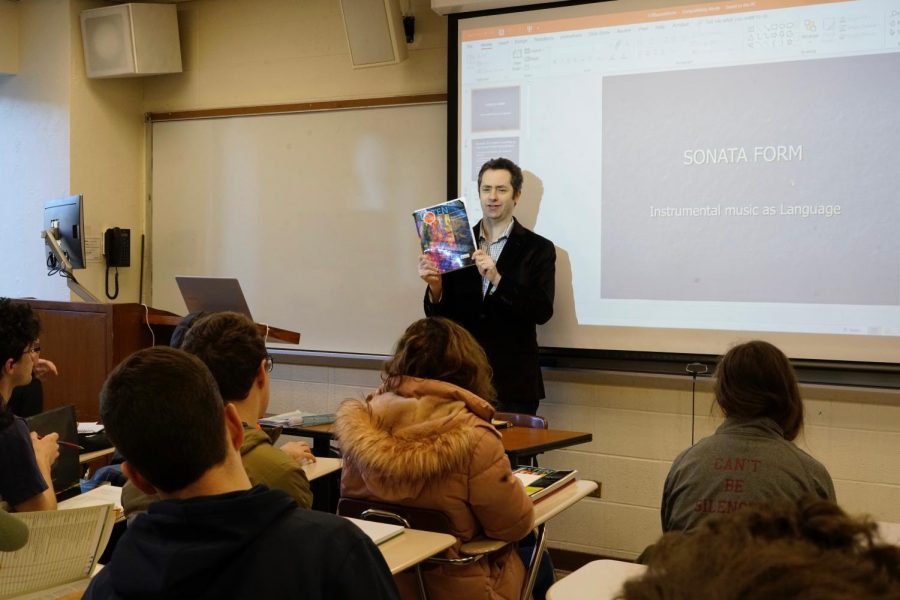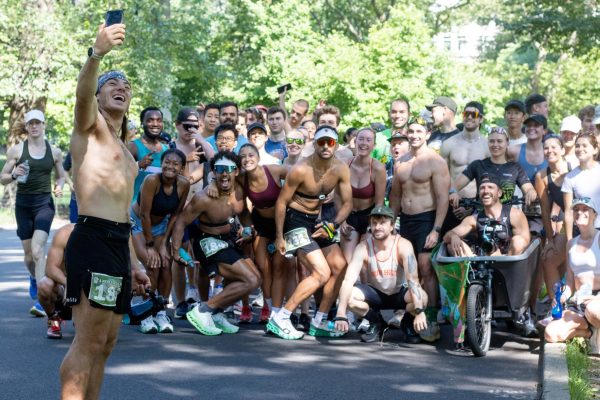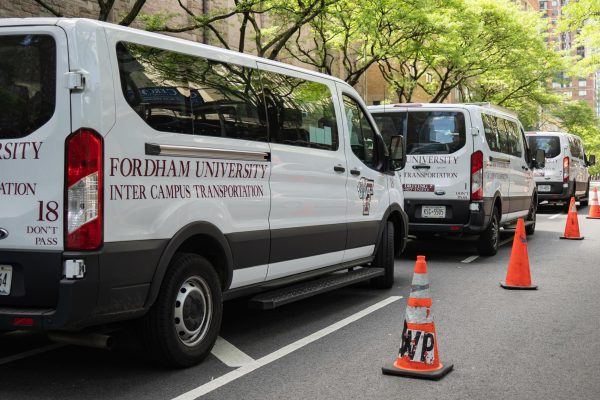Five Classes to Take Before You Graduate
Is Fordham’s liberal arts core getting you down? Is cura-ing your personalis a harder task than you thought? These five classes, their subjects ranging from ancient civilizations to modern mass movements, come heavily recommended by Fordham students as must-takes before you graduate:
Oprah’s Book Club with Professor Dennis Tyler
Fulfills: EP2, Texts and Contexts
Since the inception of Oprah’s Book Club, the literary landscape has greatly evolved: It has brought in new, excited readers and has increased book sales globally. This course explores the phenomenon of the biggest book club in the world that has inspired people to read more.
Professor Tyler encourages students to gain a true passion and curiosity about literature and culture. “My ultimate goal in the classroom,” he said, “is to help my students discover the seductiveness of learning.” He takes inspiration from Oprah’s own approach to reading as she is also deeply invested in the moment when people gain that newfound passion and achieve their “aha” moment.
Tyler helps foster this moment and creates that passion by assigning various texts and materials that excite him. He is especially interested in discussing the resurgence of the book thanks to The Oprah Winfrey Show and Oprah’s charismatic leadership. This semester, Tyler has added Michelle Obama’s “Becoming” (2018) to the class’s reading list.
Student Testimonials:
“In this class, I explored literature that I never previously thought I would enjoy. I love this class.” — Maya Tatikola, FCLC ’20
“I do not have a grasp on the English language, but that class taught me how to read. Professor Dennis Tyler is the number one Oprah stan.” — Gabriela Rivera, FCLC ’21
American Social Movements with Professor Zein Murib
Fulfills: Political Science, Advanced Social Science Core
In this class with Professor Zein Murib, students explore various American social movements, from the Mattachine Society to Black Lives Matter, and how they challenge the status quo. Murib encourages students to engage with political action beyond the voting booth. “Movements have historically been a very important way that people denied access to formal representation,” they said. “I want students to learn from those histories and to have them in the back of their minds as they go out into the world.”
The course was designed in 2016 after many politicians from both sides claimed that they were “leading a movement” when in actuality these campaigns perpetuated the status quo.
Professor Murib’s favorite part about teaching the class is interacting with students, “Students always give me something new to think about each time this class,” they said. “I learn a lot from them and the work that they do in their various political communities.”
Student Testimonials:
“It was a really eye-opening class to more fully understand the effects that social activism and protests have had on shaping the entirety of American politics. Zein also did a wonderful job creating a positive classroom environment and making sure everyone felt comfortable asking questions.” — Finley Peay, FCLC ’20
“Professor Murib is a great professor and I found the readings engaging. They’re an activist, and that really added to the class in that they were able to speak from experience.” — Matthew Sullivan, FCLC ’21
Music and Nationalism with Professor Matthew Gelbart
Fulfills: Music, EP3, Interdisciplinary Capstone Core
In this EP3 course taught by Dr. Gelbart, students learn to think and write critically about music. Students engage with old and new music while learning vocabulary that helps them describe or advocate music that they may encounter.
Dr. Gelbart was inspired to teach the class because of how fascinated he is with music’s social influence. He is enchanted by how music “strikes deeply into our identities, and how meanings come to be attached to sounds in the first place.” Gelbart’s favorite part of the class is looking at the historical roots and developments of modern ideas and debates. He is also fascinated by “how some incredibly beautiful music can also be used to manipulate people.”
Student Testimonials:
“I loved that class, the professor is super smart, a bit of a tough grader but really nice and very understanding if you ever need to go talk to him. We get to talk about modern music at the end and it’s really cool. I wrote my final paper on Green Day which is just amazing you know?” — Katherine Kudcey, FCLC ’19
Introduction to Physical Anthropology with Professor Caley Johnson
Fulfills: Life Science Core Requirement
Intro to Physical Anthropology gives a general survey of the biological focus of anthropology. From the history of evolutionary theories to an extensive overview of the human fossil record, Johnson challenges her class to engage with all different areas of physical anthropology.
Johnson is fascinated by life on earth, and how it came into existence. She is inspired to teach this class because of theories like how life was seeded from somewhere in outer space. To her, intelligent life and human biology are especially interesting and she aims to share this interest with her class.
Her favorite part of the class is being able to examine socioeconomic and political biases, while also welcoming students to do the same. “This is crucial when studying human evolution, variation, and diversity,” Johnson said.
Student Testimonial:
“I’m currently taking Physical Anthropology and my teacher is awesome. She’s super knowledgeable and really chill. She’s also incredibly helpful and patient when you need it.” – Samantha Rizzo, FCLC ’21
Athenian Democracy with Professor John Foster
Fulfills: Classics, Advanced History Core
Athenian Democracy gives a historical overview and an evolutionary description of democracy in Athens from 508 until 322 B.C. The course also takes a look at Athenian democracy’s most salient features and how it was imagined and criticized by leading modern thinkers.
Professor Foster was inspired to teach this class because he believes that it fills a certain void as it is important to learn about the origins of democracy.
In his 17th year at Fordham, Foster is still incredibly passionate about teaching historical events such as the Reforms of Cleisthenes, which were revisions to the political and social landscape of Athens from a monarchy to a democracy. He is also interested in the evolution of Athens as a society that was exclusive to the men born of Athens to an inclusive society where citizens could do anything.
Student Testimonials:
“Foster is one of the main reasons I stuck with my classics major. There are very few professors who are so passionate not only about what they teach, but also passionate about the students learning the subject. Whether you take Athenian Democracy specifically or not, taking a class with Professor Foster before you graduate is a must.” – Eisha Fremerman, FCLC ’19






